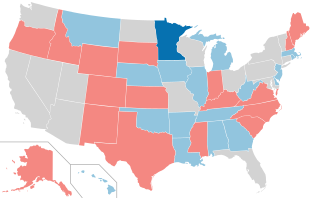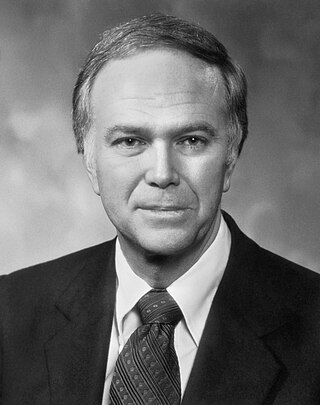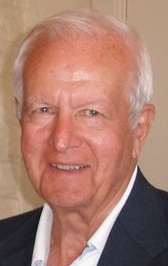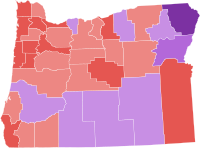
The 1992 United States Senate elections, held November 3, 1992, were elections for the United States Senate. The 34 seats of Class 3 were contested in regular elections, along with special elections to fill vacancies. They coincided with Bill Clinton's victory in the presidential election. This was the first time since 1956 that the balance of the Senate remained the same.

The 1990 United States Senate elections were held on Tuesday, November 6, 1990, with the 33 seats of Class 2 contested in regular elections. Special elections were also held to fill vacancies. The Democratic Party increased its majority with a net gain of one seat from the Republican Party. The election cycle took place in the middle of President George H. W. Bush's term, and, as with most other midterm elections, the party not holding the presidency gained seats in Congress. Until 2022, this had been the only election cycle where only one U.S. Senate seat flipped parties.

The 1988 United States Senate elections were elections for the United States Senate. Held on November 8, the 33 seats of Class 1 were contested in regular elections. In spite of the Republican victory by George H. W. Bush in the presidential election, the Democrats gained a net of one seat in the Senate. Seven seats changed parties, with four incumbents being defeated. The Democratic majority in the Senate increased by one to 55–to–45.

The 1986 United States Senate elections were elections for the United States Senate. Held on November 4, in the middle of Ronald Reagan's second presidential term, the 34 seats of Class 3 were contested in regular elections. The Republicans had to defend an unusually large number of freshman Senate incumbents who had been elected on President Ronald Reagan's coattails in 1980. Democrats won a net of eight seats, defeating seven freshman incumbents, picking up two Republican-held open seats, and regaining control of the Senate for the first time since January 1981. This remains the most recent midterm election cycle in which the sitting president's party suffered net losses while still flipping a Senate seat.

The 1980 United States Senate elections were held on November 4, coinciding with Ronald Reagan's victory in the presidential election. The 34 Senate seats of Class 3 were contested in regular elections. Reagan's large margin of victory over incumbent Jimmy Carter gave a huge boost to Republican Senate candidates, allowing them to flip 12 Democratic seats and win control of the chamber for the first time since the end of the 83rd Congress in January 1955.

The 1974 United States Senate elections were held on November 5, with the 34 seats of Class 3 contested in regular elections. They occurred in the wake of the Watergate scandal, Richard M. Nixon's resignation from the presidency, and Gerald Ford's subsequent pardon of Nixon. Economic issues, specifically inflation and stagnation, were also a factor that contributed to Republican losses. As an immediate result of the November 1974 elections, Democrats made a net gain of three seats from the Republicans, as they defeated Republican incumbents in Colorado and Kentucky and picked up open seats in Florida and Vermont, while Republicans won the open seat in Nevada. Following the elections, at the beginning of the 94th U.S. Congress, the Democratic caucus controlled 60 seats, and the Republican caucus controlled 38 seats.

The 1968 United States Senate elections were elections for the United States Senate. Held on November 5, the 34 seats of Class 3 were contested in regular elections. They coincided with the presidential election of the same year. The Republicans picked up five net seats in the Senate. This saw Republicans win a Senate seat in Florida for the first time since Reconstruction.

The 1966 United States Senate elections were elections on November 8, 1966, for the United States Senate which occurred midway through the second term of President Lyndon B. Johnson. The 33 seats of Class 2 were contested in regular elections. Special elections were also held to fill vacancies. With divisions in the Democratic base over the Vietnam War, and with the traditional mid-term advantage of the party not holding the presidency, the Republicans took three Democratic seats, thereby breaking Democrats' 2/3rds supermajority. Despite Republican gains, the balance remained overwhelmingly in favor of the Democrats, who retained a 64–36 majority. Democrats were further reduced to 63–37, following the death of Robert F. Kennedy in June 1968.

The 1954 United States Senate elections was a midterm election in the first term of Dwight D. Eisenhower's presidency. The 32 Senate seats of Class 2 were contested in regular elections, and six special elections were held to fill vacancies. Eisenhower's Republican party lost a net of two seats to the Democratic opposition. This small change was just enough to give Democrats control of the chamber with the support of an Independent who agreed to caucus with them, he later officially joined the party in April 1955.

James Howard Weaver was an American businessman, politician, and World War II veteran who served as a Democrat in the United States Congress, representing Oregon's 4th congressional district from 1975 to 1987.

The 1996 United States Senate election in Oregon was held on November 5, 1996. Incumbent Republican United States Senator Mark Hatfield decided to retire after thirty years in the Senate. Oregon State Senate President Gordon H. Smith, who had run for the Senate earlier that year, won the Republican primary, while businessman Tom Bruggere won a contested Democratic primary. The contest between Smith and Bruggere was one of the toughest that year, but ultimately, Smith was able to keep the seat in the Republican column and defeated Bruggere by a narrow margin. This is the last time that a Senate candidate was elected to the United States Senate in Oregon at the same time that a presidential candidate of the opposite party won Oregon.

The 1968 United States Senate election in Oregon was held on November 5, 1968. Incumbent Democratic U.S. Senator Wayne Morse was seeking a fifth term, but narrowly lost re-election to 36 year-old Republican State Representative Bob Packwood in a very close race.

The 1974 United States Senate election in Oregon was held on November 5, 1974. Incumbent Republican U.S. Senator Bob Packwood won re-election to a second term. Betty Roberts was chosen to replace former U.S. Senator Wayne Morse, who won the Democratic primary but died before the general election.

The 1980 Oregon United States Senate election was held on November 4, 1980 to select the U.S. Senator from the state of Oregon. Republican candidate Bob Packwood was re-elected to a third term, defeating Democratic state senator Ted Kulongoski and Libertarian Tonie Nathan.

The 1992 United States Senate election in Oregon was held on November 3, 1992. Incumbent Republican U.S. Senator Bob Packwood won re-election to his fifth term. As of 2024, this is the last time the Republicans won the Class 3 U.S. Senate seat in Oregon.

Richard H. "Rick" Bauman is a former American Democratic politician from the US state of Oregon who served in the Oregon House of Representatives and on the Multnomah County Board of Commissioners in the 1980s. He was also the Democratic nominee for United States Senator from Oregon in 1986. After retiring from politics in 1992, Bauman began organizing bicycle tours and was a founder of Portland Bridge Pedal, an annual bicycle tour crossing all the bridges in Portland.

The 2012 United States Senate election in New York took place on November 6, 2012, concurrently with the U.S. presidential election as well as other elections to the United States Senate and House of Representatives as well as various state and local elections.

Harold K. Lonsdale was an American scientist, businessman, and politician. A Democrat, he ran for United States Senate in the U.S. state of Oregon three times, losing twice in the primaries and once as the Democratic candidate, losing in the 1990 general election to incumbent Republican Mark Hatfield. In 2011 Lonsdale sponsored a research challenge to determine the origin of life on Earth.

The 1990 Oregon United States Senate election was held on November 6, 1990, to select the U.S. Senator from the state of Oregon. Republican candidate Mark Hatfield was re-elected to a fifth term, defeating Democratic businessman Harry Lonsdale.

The 1966 Oregon United States Senate election was held on November 6, 1966 to select the U.S. Senator from the state of Oregon. Incumbent Senator Maurine Brown Neuberger did not seek re-election. Held during the escalation of United States involvement of the Vietnam War, the race was between Republican candidate and incumbent Governor of Oregon Mark Hatfield, who opposed the war, and Democratic congressman Robert B. Duncan, who supported the war. In an unusual move, Oregon's other Senator, Democrat Wayne Morse, who also opposed the war, crossed party lines to endorse Hatfield, who won in a close election, his first of five terms in the United States Senate.
























